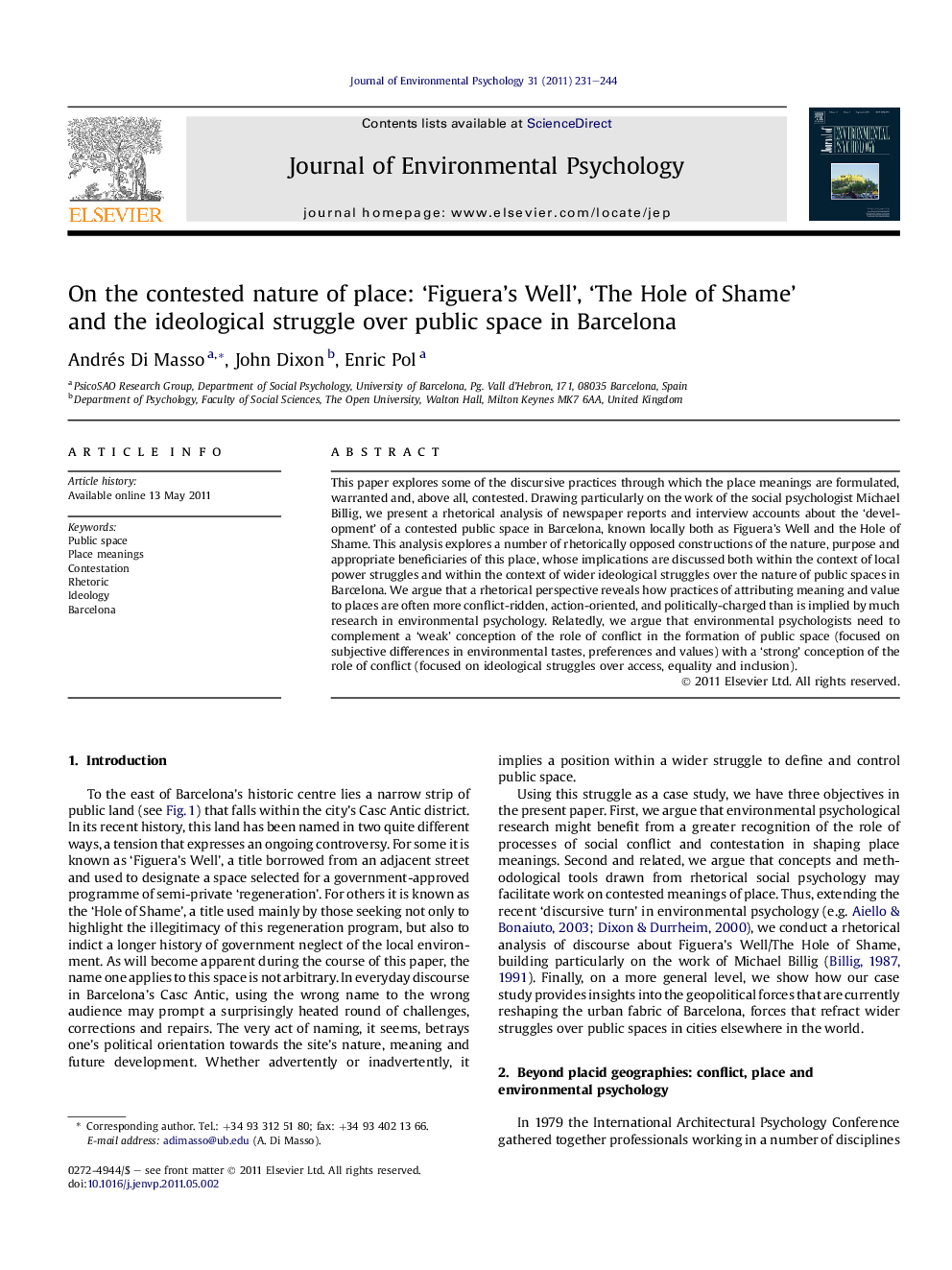| کد مقاله | کد نشریه | سال انتشار | مقاله انگلیسی | نسخه تمام متن |
|---|---|---|---|---|
| 885718 | 912840 | 2011 | 14 صفحه PDF | دانلود رایگان |

This paper explores some of the discursive practices through which the place meanings are formulated, warranted and, above all, contested. Drawing particularly on the work of the social psychologist Michael Billig, we present a rhetorical analysis of newspaper reports and interview accounts about the ‘development’ of a contested public space in Barcelona, known locally both as Figuera’s Well and the Hole of Shame. This analysis explores a number of rhetorically opposed constructions of the nature, purpose and appropriate beneficiaries of this place, whose implications are discussed both within the context of local power struggles and within the context of wider ideological struggles over the nature of public spaces in Barcelona. We argue that a rhetorical perspective reveals how practices of attributing meaning and value to places are often more conflict-ridden, action-oriented, and politically-charged than is implied by much research in environmental psychology. Relatedly, we argue that environmental psychologists need to complement a ‘weak’ conception of the role of conflict in the formation of public space (focused on subjective differences in environmental tastes, preferences and values) with a ‘strong’ conception of the role of conflict (focused on ideological struggles over access, equality and inclusion).
► Social conflict has a central significance in structuring place meanings and values.
► The discursive-rhetorical approach brings political conflict into analytical focus.
► Constructions of place meaning are rhetorically designed, warranted and contested.
► Public space meanings echo ideological assumptions about the social order.
► Analysing politically conflicting place meanings enriches environmental psychology.
Journal: Journal of Environmental Psychology - Volume 31, Issue 3, September 2011, Pages 231–244